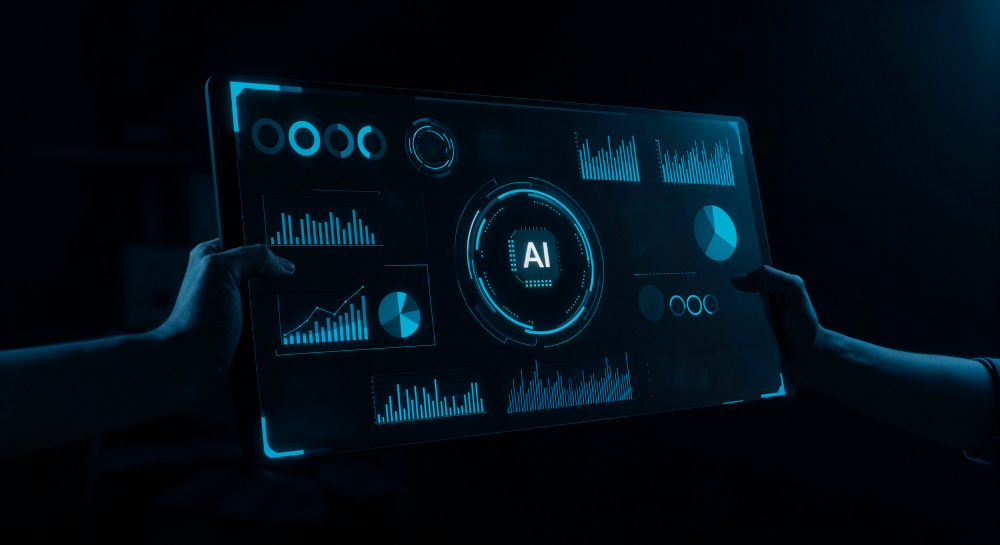Technology has always played a key role in helping businesses evolve, but few innovations have had as much transformative potential as AI assistant app development. From automating repetitive tasks to improving customer interactions, AI-powered assistants are redefining how organizations function.
These intelligent apps are no longer just optional tools—they are becoming central to business operations. In this article, we’ll explore how AI assistant app development is changing the way businesses work, the benefits it brings, and what the future holds.
What Is AI Assistant App Development?
AI assistant app development involves creating applications that use artificial intelligence (AI), natural language processing (NLP), and automation to understand and respond to user requests. These assistants can be text-based, voice-based, or multimodal, depending on how users interact with them.
Unlike traditional software, AI assistants are designed to:
- Understand natural language
- Learn from interactions
- Adapt to user behavior over time
- Execute tasks across multiple platforms
This makes them versatile tools that can serve both customers and internal teams.
Why Businesses Are Embracing AI Assistants
The shift toward AI assistant apps is driven by a need for speed, efficiency, and personalization. Businesses today must manage large volumes of customer queries, complex workflows, and real-time decision-making. AI assistants help by:
- Reducing response times with instant support
- Automating repetitive processes such as scheduling or data entry
- Scaling efficiently without increasing headcount
- Providing personalized experiences tailored to individual users
These benefits are pushing more businesses to invest in AI assistant app development as part of their digital transformation strategies.
How AI Assistant Apps Are Reshaping Business Operations
1. Automating Routine Tasks
One of the biggest ways AI assistants impact operations is by automating repetitive work. From managing calendars to generating reports, these apps reduce the time employees spend on low-value tasks. This allows staff to focus on activities that drive growth and innovation.
2. Improving Customer Service
AI assistants provide 24/7 support, ensuring customers get immediate answers at any time. They can handle frequently asked questions, process simple requests, and escalate complex issues to human agents. This not only improves response times but also boosts customer satisfaction.
3. Enhancing Decision-Making
By analyzing large amounts of data quickly, AI assistants provide actionable insights for managers and executives. Whether it’s predicting sales trends or identifying process bottlenecks, AI tools help leaders make better-informed decisions faster.
4. Enabling Personalization
AI assistants learn from user behavior to deliver tailored responses and recommendations. For example, in retail, they can suggest products based on browsing history, while in healthcare, they can provide reminders specific to a patient’s treatment plan.
5. Supporting Remote Work
As more businesses adopt hybrid or remote work models, AI assistants help teams stay connected and organized. They can schedule meetings, share updates, and ensure seamless communication across different time zones.
Industry-Specific Applications of AI Assistant Apps
Retail and E-commerce
AI assistants guide customers through product searches, handle returns, and offer personalized recommendations, improving the overall shopping experience.
Healthcare
They help patients schedule appointments, provide medication reminders, and answer health-related queries, reducing the administrative burden on medical staff.
Finance
Banks and financial institutions use AI assistants to support clients with account information, transaction tracking, and financial advice.
Education
AI assistants provide students with course recommendations, assignment deadlines, and study support, making learning more accessible and efficient.
Hospitality
Hotels and travel companies use AI apps for reservations, concierge services, and itinerary updates, improving guest experiences while reducing staff workload.
Benefits of AI Assistant App Development
Increased Efficiency
Automation ensures tasks are completed quickly and accurately, improving overall productivity.
Cost Savings
By reducing manual work, businesses save on operational expenses while maintaining or improving service quality.
Scalability
AI assistants can handle thousands of interactions simultaneously, making it easier to grow without proportional increases in staffing.
Data Utilization
AI apps collect and analyze interaction data, offering valuable insights into customer behavior and operational performance.
Brand Consistency
They maintain a consistent tone and communication style, reinforcing brand identity across all interactions.
Challenges in AI Assistant App Development
While the benefits are significant, businesses must also be mindful of challenges:
- Data privacy and security – Protecting sensitive information is crucial.
- Integration complexity – Connecting AI assistants to existing systems can be technically demanding.
- User trust – Employees and customers may need time to adapt to AI-driven processes.
- Continuous updates – AI models require ongoing training and optimization to stay effective.
Overcoming these challenges requires careful planning and collaboration with experienced development teams.
The Future of AI Assistant Apps
The future of AI assistant app development looks promising, with advancements in generative AI, predictive analytics, and multimodal interaction. We can expect assistants that:
- Anticipate needs before being asked
- Communicate more naturally through voice and text
- Integrate seamlessly with emerging technologies like IoT and AR
- Offer deeper personalization through advanced data analysis
Businesses that invest early in AI assistant technology will gain a competitive advantage as these capabilities become standard.
How to Get Started with AI Assistant App Development
For organizations considering AI assistant apps, the journey typically involves:
- Defining goals – Clarify what the assistant should achieve.
- Identifying use cases – Focus on areas with the greatest potential for impact.
- Choosing the right technology – Select tools and frameworks that align with business needs.
- Designing intuitive UX – Create easy-to-use interfaces for smooth interactions.
- Testing thoroughly – Ensure accuracy, reliability, and security before launch.
- Iterating post-launch – Continuously refine the assistant based on feedback and data.
Final Thoughts
AI assistant app development is changing the way businesses operate by combining automation, intelligence, and personalization. These apps streamline processes, improve decision-making, and deliver better experiences for both customers and employees.
As industries continue to embrace digital transformation, AI assistants will play an increasingly central role in how organizations grow and compete. Businesses that recognize this shift and act now will be better positioned to thrive in the future.


